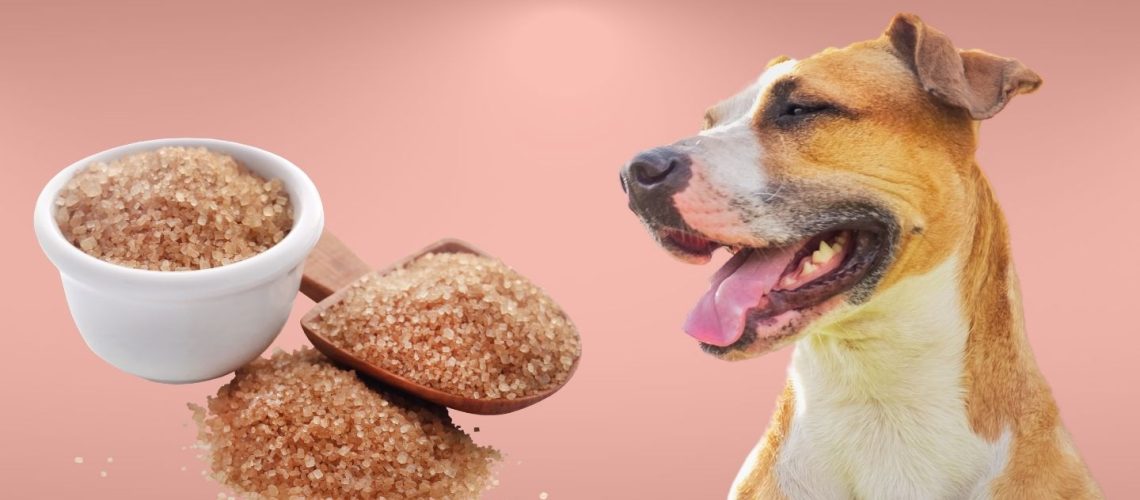The short answer is that dogs can technically eat brown sugar, but it is not recommended. While brown sugar is not toxic to dogs, it is a highly processed and refined sugar that offers little to no nutritional value for dogs.
Introduction
What is Brown Sugar?
Brown sugar is a type of sugar made by mixing refined white sugar with molasses, which gives it its characteristic brown color and slightly different flavor.
How Brown Sugar Differs from White Sugar
While brown sugar contains the same basic sugar components as white sugar, the addition of molasses gives it a darker color and richer flavor. However, this does not make it any healthier or more nutritious than white sugar.
Common Uses of Brown Sugar
Brown sugar is commonly used in baking, as a sweetener in recipes, and as a topping for various desserts.
Why Brown Sugar is not Recommended for Dogs
Lack of Nutritional Value
Brown sugar offers no nutritional value for dogs, as it is essentially empty calories without vitamins or minerals.
High Caloric Content
Due to the added molasses, brown sugar often has more calories than white sugar, which can contribute to weight gain in dogs.
High Glycemic Index
Sugar, including brown sugar, has a high glycemic index, meaning that it can cause rapid increases in blood sugar levels, which can be harmful to dogs.
Health Problems Associated with Sugar Consumption in Dogs
Obesity
A diet high in sugar can lead to weight gain and obesity in dogs, increasing the risk for various health issues.
Diabetes
Dogs, like humans, can develop diabetes due to high sugar consumption, leading to serious health complications if not managed properly.
Dental Issues
Sugar can stick to a dog's teeth and cause tooth decay and gum disease.
Gastrointestinal Problems
Consuming large amounts of sugar can cause stomach upset, vomiting, and diarrhea in dogs.
Hyperactivity
Some dogs may experience a temporary increase in energy and hyperactivity after consuming sugar.
Alternatives to Brown Sugar for Dogs
Natural Sweeteners
Honey
Honey can be a healthier alternative to brown sugar for dogs, providing some nutrients, antioxidants, and antibacterial properties.
Maple Syrup
Maple syrup, another natural sweetener, can be used sparingly as a treat for dogs but should also be given in moderation due to its high sugar content.
Dog-Friendly Treats
Fruits and Vegetables
Many fruits and vegetables, such as apples, carrots, and sweet potatoes, can be healthy, low-sugar treats for dogs.
Dog Biscuits and Chews
There are various dog treats available that are made with wholesome ingredients and are low in sugar.
Tips for Reducing Sugar in Your Dog's Diet
Reading Pet Food Labels
Check the ingredient list on your dog's food and treats to ensure they do not contain excessive amounts of sugar.
Choosing Low-Sugar Dog Treats
Opt for dog treats that are low in sugar, such as those made with fruits, vegetables, or lean proteins.
Making Homemade Dog Treats
Consider making your own dog treats, allowing you to control the ingredients and sugar content.
What to Do If Your Dog Ingests a Large Amount of Brown Sugar
Signs of Overconsumption
Overconsumption of brown sugar can lead to vomiting, stomach upset, and sometimes tremors in dogs.
Immediate Actions to Take
If you believe your dog has consumed a large amount of brown sugar, closely monitor them for any signs of distress and provide plenty of water to help dilute the sugar.
When to Contact Your Veterinarian
If your dog shows severe symptoms or becomes increasingly uncomfortable, contact your veterinarian for professional advice and assistance.
Frequently Asked Questions
Can Dogs Eat Other Types of Sugar?
Dogs should generally avoid all types of sugar, as they offer little to no nutritional value and can contribute to health problems.
Can Dogs Have Artificial Sweeteners?
Artificial sweeteners, such as xylitol, can be extremely harmful and even life-threatening to dogs, so they should never be given any products containing these substances.
What Foods Containing Brown Sugar are Dangerous for Dogs?
Foods containing brown sugar, such as baked goods, candies, and chocolate, can be harmful to dogs due to their high sugar content and other potentially dangerous ingredients.
Conclusion
Importance of a Balanced Diet for Dogs
A well-balanced diet is essential for your dog's health and well-being, so it's crucial to provide them with wholesome, nutritious foods and avoid feeding them excessive amounts of sugar, including brown sugar.
Making Informed Choices for Your Pet's Health
As a responsible pet owner, it's important to be knowledgeable about the foods your dog can and cannot eat, and to make well-informed choices in order to maintain their overall health and happiness.











